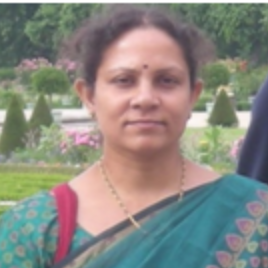
C. Vasantha Lakshmi
Work place: Physics and Computer Science Department, Dayalbagh Educational Institute, Agra, UP, India
E-mail: cvasanthalakshmi@gmail.com
Website: https://www.dei.ac.in/dei/science/index.php/phy-faculty/90-physicsfaculty/124-dr-c-vasantha-lakshmi
Research Interests: Soft Computing, Image Processing, Pattern Recognition, Evolutionary Computation
Biography
Dr. C. Vasantha Lakshmi is working in the Dayalbagh Educational Institute, Agra, UP, India as an Associate Professor in the Department of Physics and Computer Science. She obtained her B.Tech. (ECE) from JNTU in 1992, M.Tech. (CS) from Central University, Hyderabad in 1994 and Ph.D. from DEI, Dayalbagh in 2003. She has been the PI and Co-PI of several funded research projects. She has authored one book and has more than 40 publications in Journals and Conferences. Her research has been recognized by several awards including the Indian Science Congress Young Scientist Award in 2004 and Systems Society of India Young System Scientist Award in 2009. Her research focuses on Image Processing and Pattern Recognition. She is a member of the IEEE and the IEEE Computer Society.
Author Articles
Robust Adaptive Watermarking Based on Image Contents Using Wavelet Technique
By A. K. Verma C. Patvardhan C. Vasantha Lakshmi
DOI: https://doi.org/10.5815/ijigsp.2015.02.07, Pub. Date: 8 Jan. 2015
A good watermarking scheme should be able to perform equally well on all types of images irrespective of image contents because practically watermarking has to be applied to images of all types. In this paper, it is shown that in wavelet based spread spectrum technique, watermarking at level 1 decomposition is better for textured images while watermarking at level 2 decomposition is better for non-textured images to achieve maximum robustness against various types of attacks. The proposed wavelet decomposition level selection algorithm utilizes the edge histogram to classify the host image as textured or non-textured image and automatically selects the level of decomposition for robust watermarking. The use of Spread Spectrum watermarking technique and Bior6.8 wavelet, results better robustness. Performance of the proposed scheme and its relative effectiveness is demonstrated on both categories of images under different attacks.
[...] Read more.Other Articles
Subscribe to receive issue release notifications and newsletters from MECS Press journals